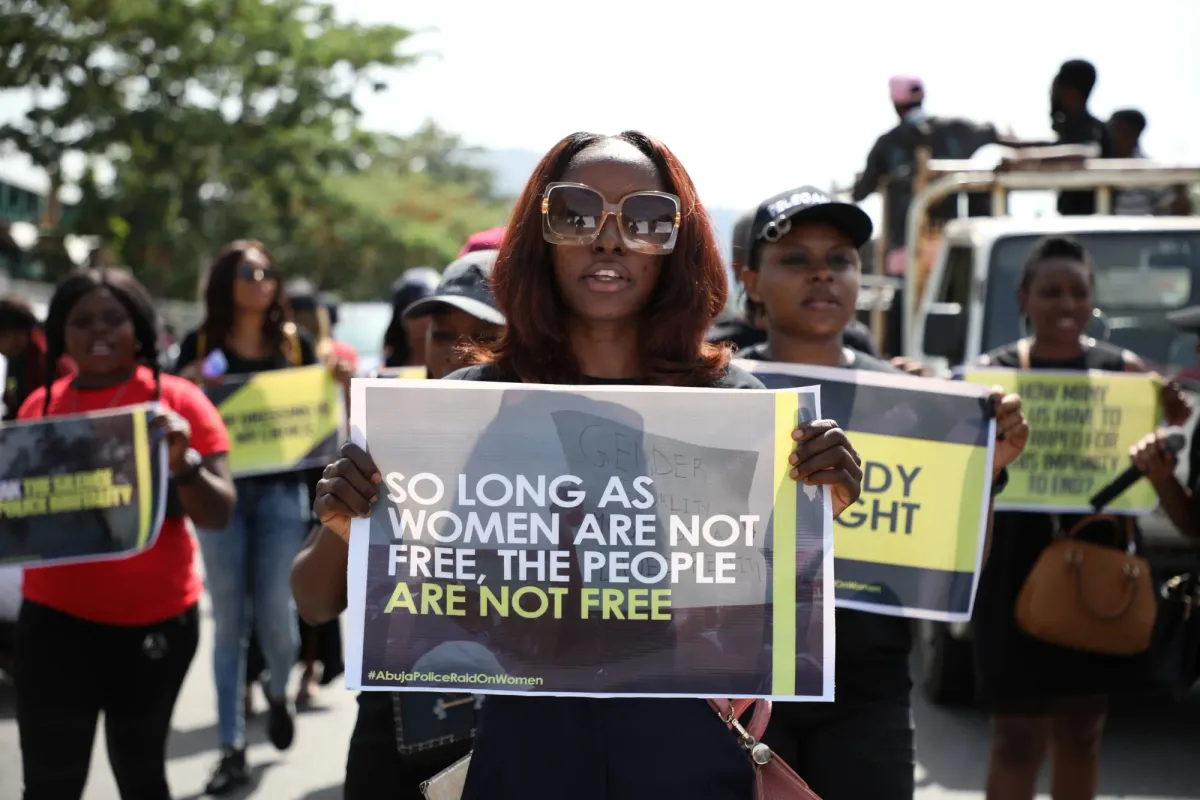How Vazi Legal is helping African tech startups to curb sexual harassment
Vazi Legal has unveiled a policy guide to tackle sexual harassment in the African tech ecosystem.

Vazi Legal, a pan-African tech law firm has launched a sexual harassment policy guide for tech startups [in Africa] to curb sexual misconduct in the ecosystem.
"Every company should have a Sexual Harassment Policy. If you are not sure where to start, Vazi Legal has put together this guide and it is available to download for free," Moe Odele, a founding partner at the firm tweeted.
This policy includes a sexual harassment definition, examples of sexual harassment and details about complaint mechanisms.
"This doc is a guide and by no means exhaustive. Workshop it with your team to come up with what works for how your company is structured. For instance, if your company is remote, include a section that provides for sexual harassment having nothing to do with physical proximity," she added.
Also Read: Inside Vazi Legal's effort to provide legal support for African tech startups
Sexual misconduct allegations in the African tech industry
"Sexual harassment has been a front-burner issue in the ecosystem for a while now. This is hurting the ecosystem and affecting women who are meant to be safe at their respective workplaces," Fikayo Obadofin, an associate at Vazi Legal told Benjamindada.com.
Allegations of sexual harassment have rocked the African tech industry in recent times, especially in Nigeria. In 2020, Kelechi Udoagwu, a communications consultant for tech startups, in a series of tweets alleged that she was sexually harassed by Kendall Ananyi, chief executive of Tizeti, an internet service provider, while she was undergoing a mentorship programme at Meltwater Entrepreneurial School of Technology (MEST).
Although Ananyi was asked by Tizeti to resign, the company reinstated him after a month stating that after an investigation by a Special Independent Investigation Committee led by a Senior Advocate of Nigeria, Olumide Sofowora "a case of sexual harassment had not been established" after reviewing the information it gathered from sources in Nigeria and Ghana and conducting interviews with Udoagwu and Ananyi separately.
His name is Kendall Ananyi. Founder of https://t.co/rgZVPGLshR or Tizeti. https://t.co/M5dkVoiti5
— Chi. (@anti_ratrace) June 3, 2020
More recently, Risevest asked its co-founder and CEO, Eke Urum to step down indefinitely due to allegations of sexual and non-sexual misconduct pending a 6-week investigation by an independent investigation panel set up by Risevest's investors to look into the allegations.
The allegations at Risevest came a few months after Flutterwave's CEO Olugbenga Agboola was also accused of sexual harassment by ex-employees at the company. Agboola has since denied the allegations, in an email to Flutterwave employees, he said that "sexual harassment [allegations] have been proved false or has already been reported, investigated and addressed by management."
A 2020 survey revealed that the vast majority of boards (77%) had not discussed accusations of sexually inappropriate behaviour or sexism in the workplace. For nearly all of them, scandals around sexual harassment didn’t trigger the creation of a plan of action (88%) or any actualisation of the risk assessment regarding these issues (83%). In a male-dominated industry, more female victims have raised complaints on this issue, 56% of female founders and C-suite executives in Nigeria's tech industry have reportedly said that they faced "gender-based challenges" in the course of their work.
This is not only common in the tech industry, almost half of women working in media in Africa have been sexually assaulted at work, a study by the World Association of News Publishers (WAN-IFRA), Women in News initiative and the University of London revealed. Other corporate workspaces—including tertiary institutions are also involved in this misconduct.
Aside from the negative perception that sexual harassment allegations can have on company brands, legal liability, and social impact, the International Finance Corporation said that putting policies in place for creating a respectful workplace and addressing sexual misconduct can "drive productivity, profitability, and performance".
According to the Vazi Legal sexual harassment policy guide, "prevention of sexual harassment in the workplace requires training programs for both employers and employees, which concretely address such topics as the national laws that prohibit sexual harassment, creating workplace policies and steps that individuals can take."
The guide is essential to sparking a conversation and bringing to the forefront important issues which are typically not seen as relevant. It is important to note that every employee should feel safe in the workplace, and this starts by implementing policies such as this within the workspace. — Fikayo Obadofin






